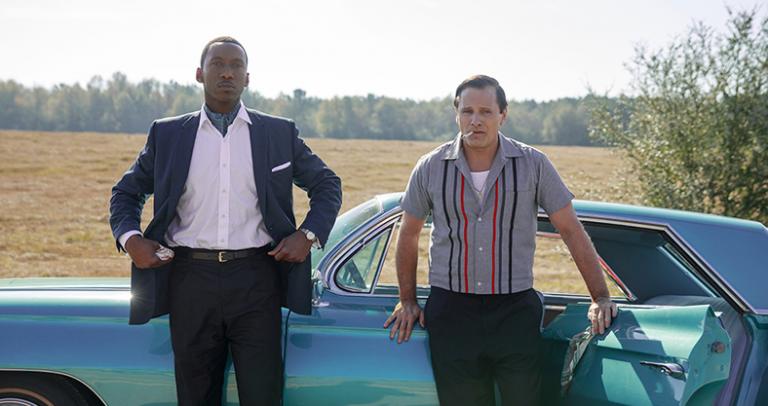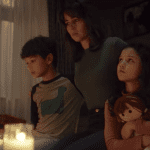
Green Book was not 2018’s Best Picture. Not by a mile.
Roma deserved the Oscar’s biggest honor. BlacKkKlansman and The Favourite were more creative and daring. Black Panther might’ve been a popcorn superhero flick, but one that was at once meticulous and regal, important and fun. Even if the Academy was interested in selecting the sort of film that the Academy stereotypically selects, A Star is Born was, aesthetically, the better choice.
But if Green Book’s Best Picture Oscar did the Academy no favors, that same Oscar hasn’t been good for Green Book, either.
When Julia Roberts announced it, BlacKkKlansman director Spike Lee nearly stormed out of the Dolby Theater. Legions of critics have attacked the film on Twitter. (I’ve even read tweets from a critic or two that proudly said they never even watched the movie—an odd thing for a critic to brag about.) It’s been called out for its questionable historicity, its white-savior complex, its retrograde vibe and a dozen other apparent sins. The Los Angeles Times’ Justin Chang does a good job unpacking all the film’s problems, calling it the “worst best picture Oscar winner since Crash”.
I get the crit. I agree with a lot of it.
But I think in the rush to trash Green Book, some critics miss virtues that, at this point, feel all but lost. Green Book is flawed, certainly, but I don’t think liking it qualifies as a societal sin. Here’s why.
Critics insist that not only is Green Book a flawed story, but they also seem to assume there’s only one right way to watch and absorb that story: If we don’t see the flaws they see, then we’re as wrong as the movie is.
On one hand, they’re right: Frankly, the Green Book blowback has helped me better understand its issues.
But at the same time, it’s crazy to overlook the fact that we don’t just watch a movie. We experience it. And that experience is very dependent on our own experiences and tastes. Some folks hate horror movies, regardless of how good they are. Some folks love romcoms, even insipid ones. I’m super-sensitive to father-son stories, and I’m prone to simply like a movie more if it has even a semi-effective one in play. (I might be the only critic who truly loved Beautiful Boy.) Sometimes we like or dislike things because we don’t know any better. But sometimes … we like what we like.
BlacKkKlansman, in my mind, is a better-made movie than Green Book. But its anger—especially Spike Lee’s shrill, modern-day aside in the film’s final 10 minutes—soured some on the experience. Green Book is a milder movie, admittedly—but for some, they could see and hear and digest those gentler messages of racial reconciliation, whereas BlacKkKlansman’s more shrill storytelling shut down their receptors.
Are these people wrong? Are they flawed? Some might say so. But to the critics who say yes, let me offer a thought: Maybe shouting “you’re doing it wrong!” isn’t the best way to change hearts and minds.
Which brings me to my second point.
Green Book, critics say, is a feel-good story that minimizes the huge issues at play and does nothing to address the real, systematic racism that’s still very much a part of our world. It seems designed to help white people feel better about the whole issue, without doing anything to really address the issue itself. A black man and a white man are friends now! Racism’s solved! One critical tweet referenced the subtle liberal racism Jordan Peele satirized in Get Out: “Green Book would have voted for Obama a third time,” the tweet read.
This criticism is absolutely valid. I don’t think the makers intended that message, but it’s there, and it’s dangerous.
But underlying that message is a deeper, more affecting one: The friendship that develops between the two main characters.
Dr. Don Shirley (Oscar-winner Mahershala Ali) is a brilliant, black pianist traveling through the deep, segregated South in the early 1960s, driven by a streetwise Italian-American who goes by the name “Tony Lip” (Viggo Mortensen). While Chang of the L.A. Times suggests that the film forces us to sympathize more with Tony than Shirley, that wasn’t the case with me. As an introvert who was always picked last in gym, I found it was far easier to slip into Shirley’s shoes. But no matter: Their friendship is the heart and soul of Green Book. It feels real and powerful and affecting.
Some of the other films dealing with racial tension, like BlacKkKlansman, point to systematic injustices and society-wide problems and, often, broad swaths of people. It addresses—really effectively, I think—how anger begets anger, but it itself is an angry movie. It feels a little like an Old Testament prophet condemning a nation. This is wrong!, it says, and so it is. It demands change, and so society (and we) should.
Green Book takes a different tack. It addresses racism directly and boldly. But the story’s inherently smaller, more personal. And so the change we see is more relational. It swings toward a more New Testament style of persuasion, if you will: Instead of standing on a mountaintop and screaming “repent!” It meets us by the well, looks us in the eye and talks to us.
That’s even reflected in Green Book’s story itself. Shirley goes south, in part, to change hearts and minds. And so he does—but not of the people he’s trying to reach, the people who flock to his concerts but still make him use a “colored only” bathroom. He changes Tony. And yes, Tony changes him. That’s how relationships work. And in the end, I think those eye-to-eye, person-to-person relationships is how real change happens.
Change is hard. Legislation plays its part. Societal pressure has its place. But when I think about the changes in my own life—how I think and feel about things—those changes have come through relationship. Our views are shaped by those we love.
Movies, in their own meager way, form relationships with their audiences. But like any relationship, their level of influence depends on how much we like them and trust them.
Green Book shouldn’t have won Best Picture. But I don’t think it’s a sin to like it.













